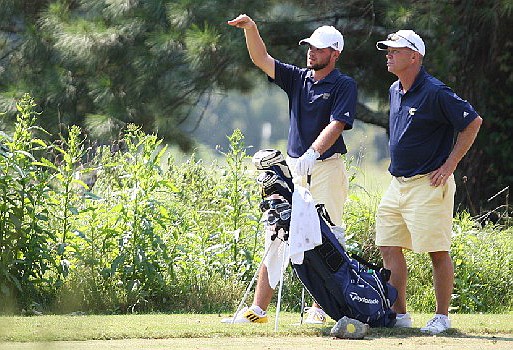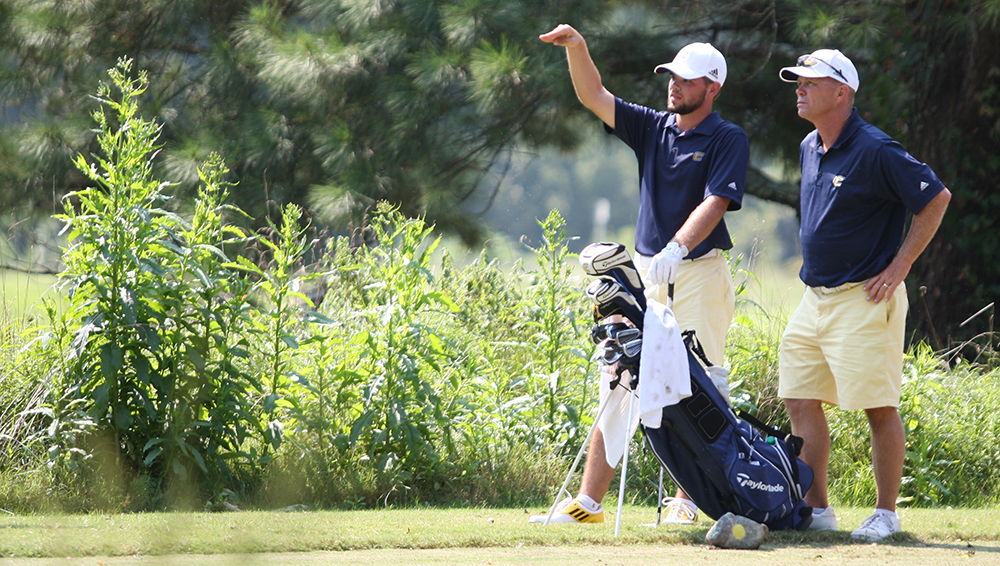The times are changing quickly in college golf recruiting. They're getting younger and younger.
University of Tennessee at Chattanooga men's coach Mark Guhne remembers being a featured speaker at the Ringgold Telephone Company Junior All-Star when it switched to a younger field and limited the number of rising juniors and seniors from competition.
"I was the only coach there," Guhne said.
That wasn't the case last week for that tournament at WindStone. Coaches from power programs across the Southeast -- including Duke, Auburn, Vanderbilt, Georgia Tech and South Carolina -- walked the hilly course in search of future players for their programs.
They weren't watching the five rising juniors. They were there for the younger golfers -- as young as two seventh-graders -- many of whom don't know the difference between Barbasol and a barbell.
"It's crazy, I don't get it, but that's what's happening," Guhne said. "I don't like it. I don't want to recruit a kid that's 12 years old. That's a bit ridiculious."
Big-program coaches didn't attend the AJGA event at WindStone two years ago. And the new trend has dramatic ramifications for both players and coaches.
The coaches are under more pressure to recruit high-profile young players to fill classes two, three and four years ahead. And the youth golfers feel the pressure to commit to a big program or else their choices will be limited by the time they're a junior and certainly going into a senior season.
"Recruiting didn't get serious until after my sophomore year, but I knew coaches were watching me way before that," said Chattanooga Christian rising senior Scott Stevens, who has chosen to play at South Carolina. "Last summer I had to make a decision. The reason we have to commit so early is that we'll lose our spot.
"Colleges can't really wait on you that long, because there are ton of great kids out there."
Stevens is very satisfied with his decision to join a nationally recognized program that competes for Southeastern Conference and national championships almost every year.
Gordon Lee rising sophomore Justin Hickman would like to join Stevens on that level and play Division I golf. But in a way, even as a golfer with a state championship medal hanging in his room, he's a little behind other golfers who played WindStone last week. That was his first AJGA event, and he tied for 39th place.
"It's scary starting the process," Hickman said. "You get nervous about what if you have a bad summer this year. There's a bunch of what-ifs that pop up."
College coaches have what-ifs to worry about as well. What if a young player showing promise plateaus after he has committed? What if a player hits a growth spurt, changing his mechanics? What if a player gets burnt out on golf by the time he sets foot on campus? What if he's flat-out not as good as the coach expected three years ago?
"I know of some who have worked out and some who were a bust by the time they were seniors in high school," Guhne said. "Then all sorts of bad things can happen."
Guhne, whose team has reached NCAA regionals the last eight seasons -- and two NCAA championship tournaments -- said he's paid attention to rising sophomores but has never made an offer to one. He sees the peril in getting young players to say they'll play for the Mocs.
"I might have to do it in the future," he said. "I don't like it. I don't want to do it. It's going to lead to a lot of bad things like a kid committing to one school one week, then another school the next month."
The Mocs have been ranked as high as No. 1 in the nation with Guhne at the helm -- in 2008.
"Lots of guys that we built this program on got good late in high school," Guhne said. "Bryce Ledford is one. Derek Rende may have been better at baseball or basketball until late. Nobody recruited Jonathan Hodge until late.
"They weren't phenoms at 14 years old."
Area college teams including Lee University, Tennessee Wesleyan, Sewanee, and the fledgling Dalton State program can take advantage of the big-boy programs spending too much time and offering too much money to young players. The lower-level schools will scoop them up and succeed.
"A lot of programs are looking for can't-miss kids at 14 or 15 years old," Lee coach John Maupin said. "There aren't many, and that's a benefit to us.
"I really try to hold my scholarships until later, because good players are going to pop up in the end.
"Two of our guys -- Shea Sylvester hit a growth spurt and he had a 73 average for us, and Taylor Davis wasn't getting exposure early. By the time he was good enough, D-1 teams didn't have spots. So we gladly took him.
"Several kids in my tenure were, or are, good enough to play at big places."
They just weren't good enough early enough.
Contact David Uchiyama at duchiyama@timesfreepress.com or 423-757-6484. Follow him at twitter.com/UchiyamaCTFP.

